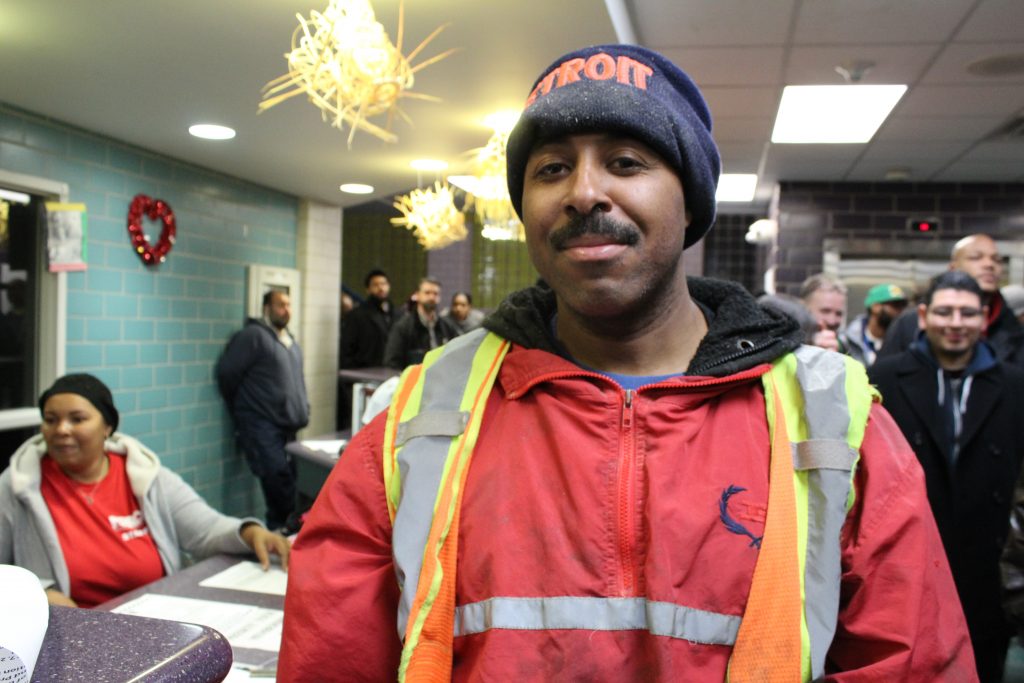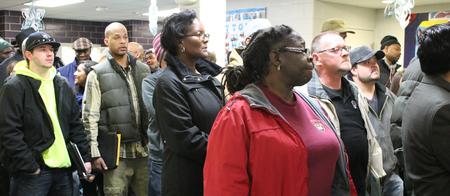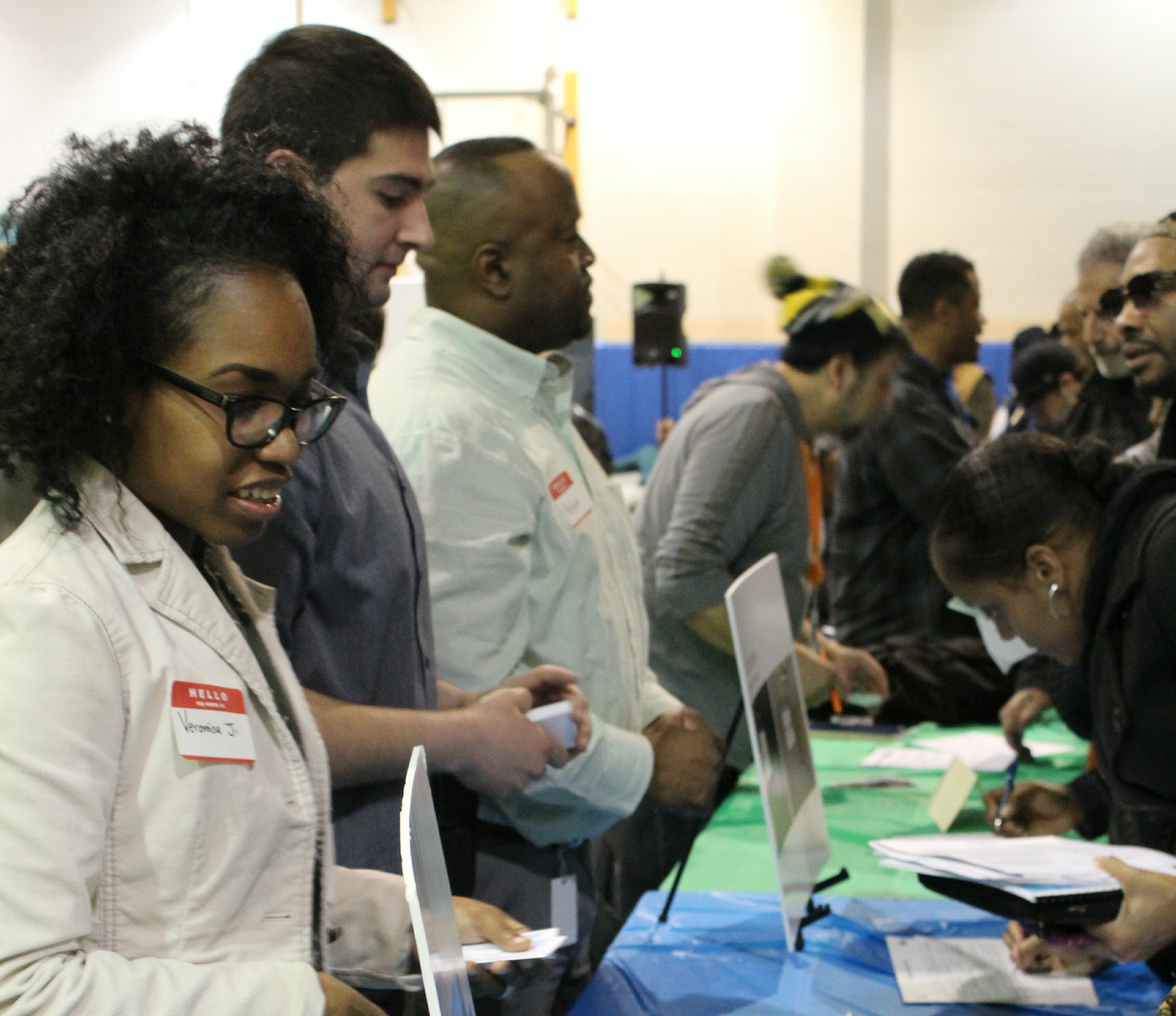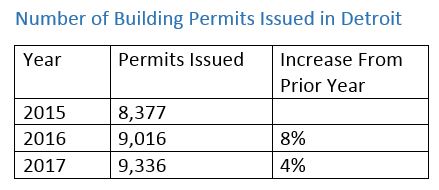City of Detroit Reaches Out to Residential Contractors
As the number of building permits rise, skilled workers are needed for rehab programs.


About a hundred people were crammed into the lobby of the Patton Recreation Center in southwest Detroit last month. They came for a fair hosted by the city to help residential contractors get licensed and connected with a handful of residential rehab projects.
Ronnie Paquette, co-owner of a lead and asbestos removal company, waited with the crowd. Paquette said when he works in Detroit it’s usually as a subcontractor. He came to the fair to figure out how to get jobs directly from the city.
“I’ll be in control instead of someone telling me what to do,” said Paquette. “I’ll be able to run the job the way I want it to be done.”
When the doors of the contractor fair opened, Paquette and others rushed into the gymnasium. Inside, it was a typical job fair, with city employees and representatives from various projects staffing folding tables.

Veronica Jackson was giving out information on the Detroit Land Bank’s “Rehabbed and Ready” program. The agency takes distressed city-owned properties and renovates them to be put back on the market.
“Our houses are complete gut jobs,” said Jackson. “We’re looking for everything you can think of. We’re looking for roofing companies, we’re looking for plumbers, HVAC service providers, electricians. We’re looking for people that specialize in historic preservation. Really, anything.”
When “Rehabbed and Ready” needs specific work done, Jackson said, requests for quotes will be posted. Licensed residential contractors can submit their bids for those services, and the best offers will be selected.
At least that’s how the process is supposed to work. The Land Bank has been under federal investigation for giving preference to certain contractors. But the goal of this event was to open the doors to new companies to do business with the city.
Boysie Jackson, the city’s director of procurement, gave a short speech to the contractors while they moved from table to table.
“Tonight is your night to be able to understand how you can get involved in the mayor’s initiative on involving the community, involving contractors to help us take care of the residential rehab work programs,” he said.
He then encouraged the contractors to register with the city and become familiar with the bidding process.
“It does not cost you a dime to see bids in the city of Detroit so that you can submit your bid proposals and get a part of this pie,” said Jackson.
That pie totaled more than $3 billion between 2015-2017. That’s an extremely conservative estimate since it comes from building permits issued by the city of Detroit and only 56 percent of the permits issued during that time included estimated project costs.
Construction in Detroit Between 2015-2017
In the last three years, more than 27,000 building permits were issued by the City of Detroit. Some permits were for new construction but most were for things like installing new roofs and windows, demolishing buildings, or erecting fire hydrants.

Of all the projects that were issued building permits, 56 percent listed estimated costs. Those estimates totaled more than $3 billion ($3,029,830,530).
More than three-quarters of the permits issued were for work on residential structures like single-family houses or apartments.
SOURCE: “Building Permits” dataset at http://data.detroitmi.gov
Some of the contractors at the fair had previously won paying jobs from the city. Civil Engineer LaCresha Ware said the company she works for was first selected for demolition work with Detroit about a year ago. But, she said, it took a long time to get to that point.
“It’s a tough process for a very small company that’s just getting started. But it is doable. I think the city needs to take time to walk people through the steps but I that’s what they’re doing here today,” said Ware.
She said even though she’s already worked as a contractor for the city, she came out to the event to learn about residential rehab programs offered in Detroit. Lead Hazard Reduction Demonstration Program, Detroit 0% Home Repair Loan Program, Bridging Neighborhoods Home Swap Program and Rehabbed & Ready were among the programs represented at the event.
“You can never have too much information,” said Ware.
